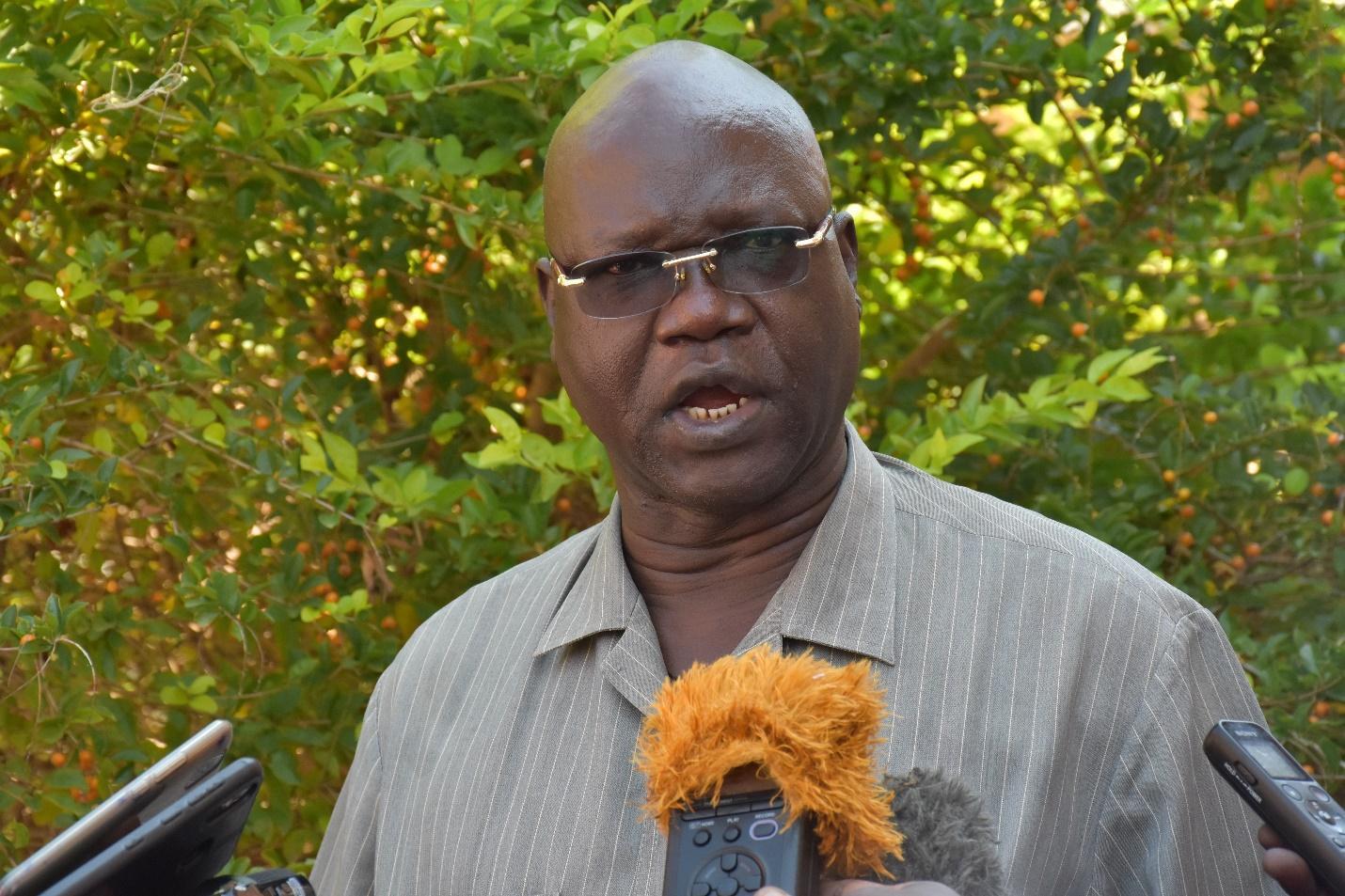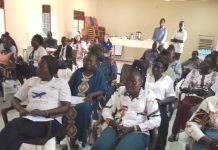Jenifer James
Africa-Press – South-Sudan. The chairperson of the South Sudan National Chamber of Commerce, Lado Lukak. [File, The City Review]
The chairperson of the South Sudan National Chamber of Commerce, Lado Lukak, called on the government to pay the traders who lost their money in the “dura saga.”
In 2008, the council of ministers of the then Government of Southern Sudan (GoSS) passed a resolution directing businessmen to buy food for states that were badly affected by natural disasters and a budget of $1 million had been earmarked for their payment but it never happened.
But as he addressed the delegates at the second edition of the Central Equatoria State Juba Economic Forum on Monday, Lukak lamented that the act of mercy by the business community had been mistaken for charity as their dues were yet to be paid.
“We brought dura as business people to address the famine issues in the country in 2008; until now, no money has been paid,” he said.
“We keep going to the ministry of finance to pay us (business personnel), but unfortunately, until now, the money has not been paid,” Lukak added.
According to him, the government normally keeps blaming the South Sudanese business community for having no capacity to deliver services to the people but there is little or no attention to the fact that some of them are in debt.
“How do you (the government) expect us to deliver? If our hands are tied down and our money has not been paid yet, on top of that, we are blamed for having no capacity. How can we deliver?” he posed.
However, he said the traders are ready to work for the development of the nation.
Lukak urged the delegates at the Juba Economic Forum to discuss the real issues that are affecting the business community in the country.
Meanwhile, the Chairperson of the Specialised Committee of Information in the National Parliament, John Agany, claimed that in 2008, when the government approved $1 million for importing food for the famine-affected states, some traders just went to Konyo Konyo to buy dura.
“The government became fed up with the business personnel, and that program has fallen short of the process; that was the nature of the dura saga. Individuals were given a chance to bring food when they were not qualified,” he alleged.
Agany added that many individuals secured the contracts with fake papers, claiming to be companies, and ended up getting away with hundreds of millions of dollars without any grain delivered to the states.
“There were no letters of guarantee from them, so that, you know, when you are given such chances, first of all, you must be a registered trader, and of course, by being a registered trader, you have an account.”
In 2013, the government formed a committee to investigate the misuse of public funds meant for importing dura.
Source: The City Review South Sudan
For More News And Analysis About South-Sudan Follow Africa-Press






